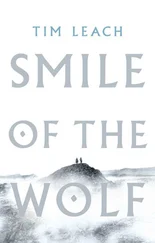There was only one of his riders out amongst the dead. It was Gaevani – dismounted, circling around the corpses, one hand scratching at his jaw and picking lice from his beard, looking up as Kai approached. He was smiling.
‘You can smile at this?’ said Kai. ‘If you have touched them, I shall kill you.’
‘I am no vulture.’ Gaevani inclined an eyebrow towards Kai, dressed in the armour and bearing the iron blade he had taken from the dead. ‘I do not pick at those that I do not kill,’ he said. ‘But I do smile, because I know what to look for, and you do not. Look with me, and tell me what you see.’
Kai swung down from the horse, and as soon as he had dismounted it stamped the ground, unsettled. He stroked its mane and whispered to it words of courage – words he needed himself, before he made himself look upon the dead.
The dogs first. All of them white, or nearly so, bred so as not to be mistaken for the wolves that always haunted the borders of the villages in winter. Many of them left faceless from the long sweeping blades that had swept down like scythes, or folded in half by the kick of a horse, backs broken.
Then the raiders – Roman cavalry, bearing red shields and the mark of the eagles upon them. Men of many nations, who had traded their honour for iron, sworn service to Rome. More poorly armed than the warriors of the Legion, but wearing in iron scales and bearing long grey swords that would have made them chieftains amongst the Sarmatians.
At last he looked upon the Sarmatians themselves, the familiar dead. The women who fought their way from the warband, many long before he had been born, who had thought they had left a death by the blade long behind them. Old and young, those who had not fought for half a lifetime, and those just free from the killing, women who had believed that they had so much time left to live and to love. The bile hot in his throat, he looked for his daughter amidst the corpses strewn upon the ground, but saw only a handful of children there, none with her black hair and coppery skin.
And yet something was not right. He felt it, but could not say what it was. Like a splinter of a spear beneath the skin, too small to be seen, but that seems to catch at every touch.
Beside him, Gaevani waited. ‘You see it, don’t you?’ he said.
‘A part of me does, but I do not quite know it yet.’
‘Count the Romans.’
Kai thought he saw the other man roll his eyes as he counted hesitantly upon his fingers.
‘Very good,’ Gaevani said, once he had finished. ‘And now count—’
‘The horses.’ For he was there now, and began to understand. ‘More Roman horses dead than men.’
‘That’s right. And now look at our people.’
‘A simple thing for you to say. They are not of your clan.’ But he did so once more.
‘Notice anything about them?’ Gaevani said, as he tapped his hand to his own temple.
‘Greyhaired. Most of them at least.’ He made himself look closer still. ‘They all bear their wounds on their front.’
‘Yes. You see?’
And he did see it then, in his mind’s eye – a story told in images and moments. A warning given in time. A line of women forming at the edge of the village, mounted for war and greeting the invaders with iron and stone. A horn sounding, riders fighting their way to the front ranks. Not the young who believe that they cannot die, but the old and greyhaired, their horses shouldering past the others and leading the charge. Many of them who could not have walked half a mile but could still stand tall in the saddle, who could not have gathered the wheat from the fields but could still hold a spear one last time. And when the riders levelled what few long spears they had, they did not aim for the Roman riders, but for the horses.
‘I see it,’ said Kai, ‘as you do.’
‘They did well.’
‘You almost seem impressed.’
‘I am,’ said Gaevani. ‘I never thought much of your clan.’ His gaze flickered to Laimei, a still sentinel at the edge of the village. ‘But perhaps it is as some say. That your women fight better than the men.’
‘Where are the tracks?’
‘There is hope for you yet. And the tracks lead north. Not back south and west. They head for the hills.’
‘All tracks lead that way?’
‘Yes. The Romans have not gone home. They are still out there, hunting those who got away. Think we can catch them?’
Kai nodded, as solemn as a priest before the offering. ‘Oh, I know that we can.’
*
After they left the burned village, they rode wordless, communicating by gesture alone, vigilant for any unnecessary sound – the necklace that clicked against a cuirass, the loose plate of armour that scraped against others, the low-slung sword that jumped and clattered with every strike of the horse’s hooves against the ground. They moved like shadows across the steppe, for even the horses, great brutes that they were, had learned to run softly when they had to.
They rode as one. No advance guard, for they would have no time to scout and return if they made contact – they would meet and strike as one action. If they encountered some greater force, a Roman wide patrol or raiding warband, they would have no chance to get away.
That was how they passed the first day. Dancing their lives on the edge of a blade as the sun passed across the sky, until the twilight came and even the keenest of their hunters could follow the tracks no longer.
Thickly wrapped in furs and flanked by the fire, the Emperor waited, one hand picking at the Imperial purple of his cloak. The tall walls of the Aquincum fortress behind him, an open field ahead, where the Legion gathered in line and square, watching and waiting.
In Rome, after the great victories, there would come the Triumph. A parade of soldiers and treasure through the streets of the city, a festival for bloody victory and the fortune of war. They were as far from Rome as they could be, beside the frozen Danubius. But here on the frontiers of the Empire, in the depths of winter, they were to have their own little Triumph.
The trumpets sounded out and the carts came forward, filled with the pickings of the battlefield. In the torchlight the Emperor saw the faces of the centurions and tribunes, and thought he could read the touch of fear there. As the carts drew closer still, he could see why. They were few, shallow-piled, and there was no shine of treasure there.
This Emperor was not one of the madmen of old, those who might have a man tortured to death or ripped apart by wild animals at a whim for a single misplaced word or the slightest mistake. Still, he had little tolerance for failure, seemed to remember every fault. There were those who had languished in the ranks until their hair was grey, marked down by some mistake that they had long forgotten but the Emperor had not.
One by one, the carts were brought before him and emptied at his feet. No order given, no careful presentation of treasure, for this too was part of the theatre of victory. The broken remnants of a broken people, scattered before the master of Rome.
Banners and clay-stamped tamgas bearing the mark of one clan or another. Broken spears, headed with flint for the most part. Hacked cuirasses, dressed in plates of horse hooves, and only here and there, when one of the torches sparked and flared, did the Emperor see the occasional glimmer of iron or gold.
He eyed it as though he were a canny merchant in the markets of the Greek quarter, and found it all wanting. Had it been a Triumph in Rome, they would have showered the crowds with stamped silver coins, piled silk and gold and statues of bronze high before the Temple on the Capitoline. There would be no such glory in these offerings – the crowds in Rome would laugh and throw dung at such a display. But there was something in those offering that the Legionaries might respect, those who knew what it was to go to war. That a people as poor and wretched as this, armed in this fashion, had thought to stand against Rome.
Читать дальше
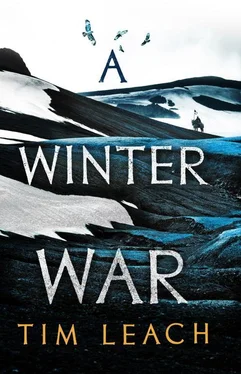
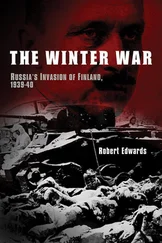

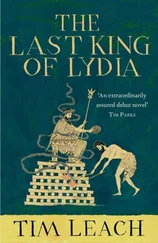
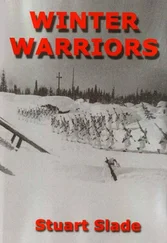
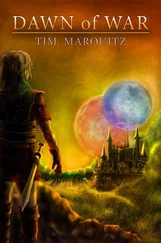

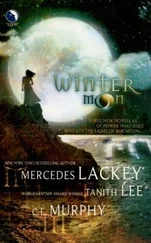
![Стюарт Слейд - Воины зимы [Winter Warriors ru]](/books/401383/styuart-slejd-voiny-zimy-winter-warriors-ru-thumb.webp)
